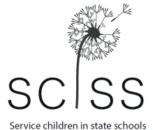Diversity Meets Complexity: Supporting Armed Forces young people to thrive in post-16 education
Diversity Meets Complexity Research Report
A research project exploring the experiences of 16-19 year olds from Armed Forces backgrounds.
Commissioned by the SCiP Alliance, with funding from a group of Uni Connect partnerships and the University of Winchester, ‘Diversity Meets Complexity: Supporting Armed Forces Students to Thrive in Post-16 Education’ is the first report to examine the educational experiences of Armed Forces young people aged 16-19 and explores how the post-16 education sector can best support these young people to achieve their potential.
The research, which has been led by The Centre for Education and Youth, brings together extensive consultation with leaders, practitioners, academics, and most importantly, young people themselves. The report shows how needs arising from the experience of being from an Armed Forces family combined with systemic barriers to accessing support can disadvantage these young people in post-16 education.
The research identified that Armed Forces young people in 16-19 education are more likely to have needs relating to the following factors or experiences of Armed Forces life:
• Mobility: Frequent moves throughout an Armed Forces young person’s journey in education may result in disrupted learning, a higher likelihood of unidentified or unmet needs, and struggles regarding their ability to build and sustain long-standing relationships.
• Deployment: Young people identify parental deployment as a significant emotional stressor affecting their performance in education and their wellbeing. During deployments some young people also deal with increased responsibilities in the home, which can sit in tension with meeting the demands of independent learning in post-16 education.
• Independence and stress: Experiences related to Service life appear to lead some Armed Forces young people to have a heightened sense of independence and responsibility. While there are some positive effects of these attributes, this may also increase their stress levels, impacting negatively on their educational experiences and their likelihood to request support.
• Aspirations and decision-making: When making decisions about their post-16 and post-18 choices Armed Forces young people are likely to consider family preferences, geographical location, continuity with staff, parental support and future family mobility. Though they may not be disadvantaged in this regard, settings may need to take account of the additional factors they may consider in other to support them.





























